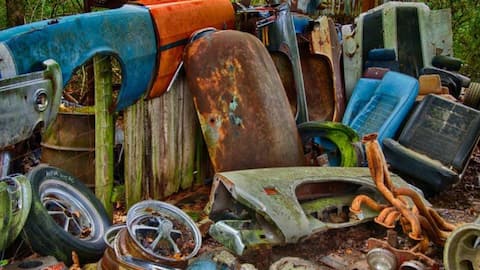Sydney resident turns trash into business, earns 100,000 Australian dollars
What's the story
Leonardo Urbano, a 30-year-old Sydney resident, has transformed the city's discarded items into a profitable venture. Last year, he earned an impressive 100,000 Australian dollars (₹56.20 lakh) by selling items he found during his daily scavenging trips through the city's streets. Urbano told CNBC that people often discard old gadgets and purchase new ones simply because the battery performance declines.
Reselling strategy
Urbano's method and success in reselling discarded items
Urbano collects discarded items, including luxury goods and electronics, and brings them back to his apartment. He sells most of these finds on platforms like Facebook Marketplace, aiming to clear items within a week or two due to limited space. Urbano explained that he developed his unique business model after repeatedly finding laundry detergent bottles that were 30% to 40% full and deciding to bring them home.
Scavenging success
Urbano's notable finds and dumpster diving influence
Urbano's dumpster diving has yielded a variety of valuable items, including over 50 television sets, 30 fridges, more than 20 washing machines, and $849 ($70,467) in cash. His success has inspired others to join him in his scavenging adventures. Among his most remarkable finds are a painting by two-time Archibald Prize finalist Dapeng Liu, valued at $3,000 (₹2,49,000) an antique Victorian English centerpiece, and a $400 (₹33,200) Italian coffee machine.
Dumpster benefits
Urbano's use of earnings and future plans
Urbano has been dumpster diving for four years, using his earnings to pay rent and furnish his apartment for free. He also hasn't had to buy cleaning products for years, thanks to partially used bottles he finds when people move out. His unique approach to sourcing items has not only provided him with a steady income but also reduced his living expenses significantly.
Insights
What is dumpster diving?
Dumpster diving, also known as totting, skipping, skip diving, or skip salvage, involves salvaging unused items discarded by their owners from large commercial, residential, industrial, and construction containers. It extends beyond dumpsters and skips to include standard household waste containers, curbsides, landfills, and small dumps. Different terms describe this activity: curb shopping, trash picking, or street scavenging for curbside collections; scrapping for recyclable metal in the UK; and gleaning for leftover food from fields.
